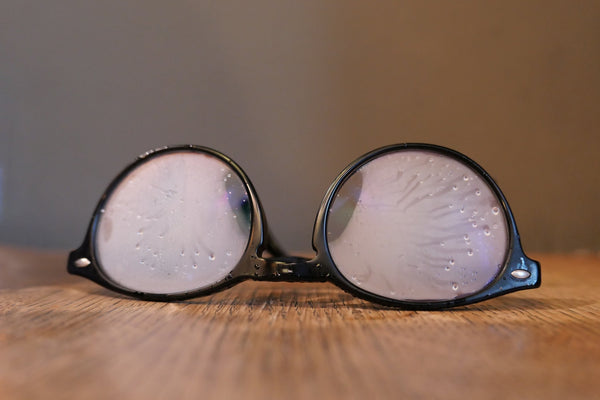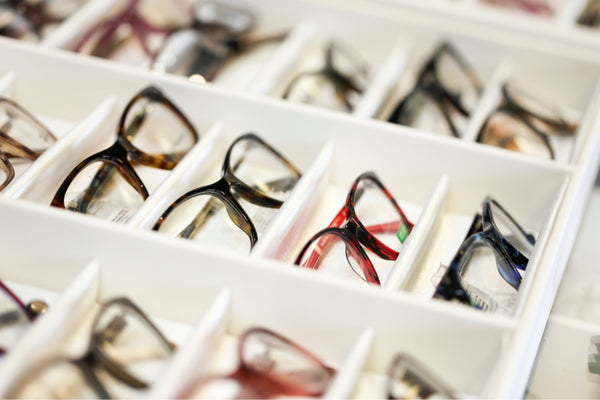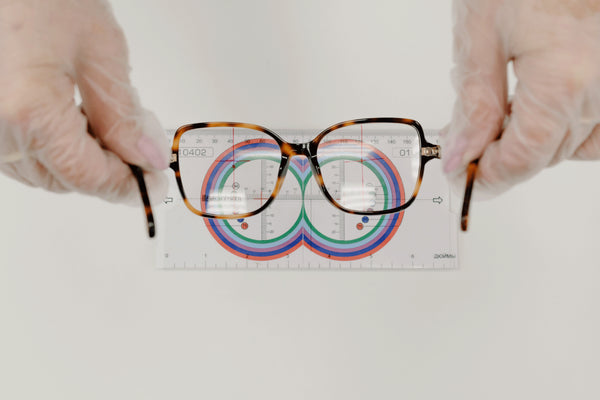
Your glasses are a daily companion and they go through a lot. From protecting your eyes from wind and dirt to coming into contact with the natural oils from your skin, they can become dirty really quickly. And keeping them clean is just part of your daily upkeep as it can lengthen the life of your glasses themselves and also make seeing through them easier – smudges and grime build-up aren’t easy to see through.
Whether you’re improving old habits, realising you need to clean them more often, or just getting used to your new glasses, learn how to keep your glasses clean with Leightons in this two-part guide for both frames and lenses.
How to clean your glasses lenses
You’re going to need to clean your glasses fairly often – at least every day preferably or any time to notice smudges and dirt.
- Start with clean hands – washing your hands with soap and water ensures no dust or dirt that could scratch your lenses are on your hands. It also makes sure no bacteria or viruses are on your hands that could transfer to your glasses and into your eyes.
- Use a lens cleaning spray – gently spritz a suitable lens cleaner onto each side of your lenses. These cleansers are formulated to cut through oils and grime and leave your glasses streak free. Don’t be tempted to huff a breath onto them, this can leave more smudges.
- Use a microfiber/glasses cloth – Next, gently wipe your lenses over with a lint-free glasses cloth or microfiber cloth to clean away debris, dust, and oils.
- Wipe the entire lens – back and forth as well as in circular motions to clean the lenses thoroughly.
Things to avoid when cleaning your glasses lenses
- Avoid using paper towels/dish cloths/clothing – Don’t use your t-shirt, random cloths, or paper towels as these can leave fibres behind or might cause micro scratches that are difficult to get rid of.
- Avoid using soaps and other ‘non-specialist’ cleaners alike – these can contain strong chemicals that will cause damage to the sensitive coating used when creating the lenses.
- Avoid breathing on your lenses to clean them – Although very common and almost everyone is guilty of doing so, it does more harm than good and causes smears and smudges.
- Ensure the water isn’t too hot as it can warp the lenses and frames and damage protective coating on your lenses.

How to clean your glasses frames
It’s also important to keep your glasses frames clean to remove dirt and bacteria built-up.
- Just like when cleaning your lenses, you will need to start with clean hands. Wash with warm water and soap before cleaning your glasses.
- Holding them by the sides to avoid warping, wipe the frames down with warm soapy water and a soft cloth.
- Alternatively, you can use a special glasses cleaner to wipe down your frames.
Things to avoid when cleaning your glasses frames
Make sure the water isn’t too hot as it can warp or misshape the frames. If you’ve already cleaned the lenses, avoid allowing the soapy water to get onto the lenses – you don’t want to start the cleaning process over again.

How to clean between your glasses lens and frame
The gaps between your lenses and frames can become pretty gunked up over time so it’s worth spending time cleaning between them. The process is similar to cleaning your frames but it requires a bit more delicacy.
- Give your glasses a quick rinse under warm water – this is to help soften debris and dirt, making it easier to clean.
- Use a soft, micro-fibre cloth to clean your frames. You can use a glasses cleaning solution or a mild dish soap.
- Focus on the harder areas to clean like in the hinges, around the edges of the lenses, and around the nose pads where the most debris builds up.
- Make sure you rinse well when you’re done to remove any leftover cleaning products and to avoid smudges.
- If your glasses are particularly grubby, take them into your local Leightons branch for professional ultrasonic cleaning.
You don’t have to do this thorough cleaning every time you clean your glasses, only when you notice a build up.
How to properly store your glasses
Storing your glasses and sunglasses helps to keep them free of dust while also ensuring they dont get knocked and scratched while you’re not wearing them.
- Hard cases are purpose-built to protect eyewear from external factors that could break or damage them. Glasses should be placed in the case with the lenses facing upward. Frame designers also build their cases with the frames in mind so it is recommended to store them in the case provided.
- Soft pouches don’t serve the same purpose as hard cases but they do protect your glasses from scratches, dust and act as a shield.
- Clean your glasses before storing them to help reduce the build up of grime, dust, and dirt overtime.
- Store your glasses in a cool and dry place away from direct heat or sunlight such as on the dashboard of your car. Glasses can be extremely sensitive to heat and moisture, causing damage and corrosion on some frames so proper storage is essential.
Keeping your glasses clean is an important part of their upkeep, making sure your vision stays clear while you wear them and making them last as long as possible. If you’re still having issues with your glasses and the cleaning process hasn’t improved them, you might need to consider getting them repaired instead.







